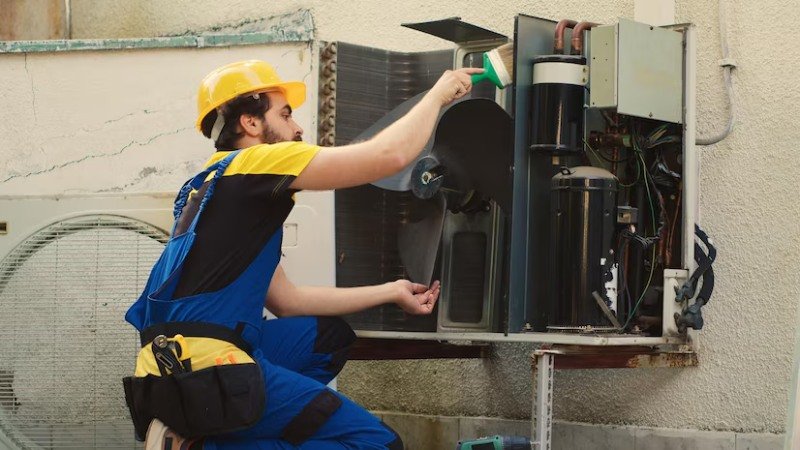In the fast-paced world of commercial operations, maintaining the efficiency of refrigeration systems is paramount. These units not only preserve the integrity of perishable goods but also contribute significantly to the overall functionality of the business. Implementing essential maintenance practices ensures that these systems operate optimally, reducing downtime and preventing costly repairs.
Importance of Regular Cleaning
One of the most critical aspects of maintaining refrigeration systems is regular cleaning. Dust, debris, and spills can accumulate in and around the unit, obstructing airflow and causing the system to work harder than necessary. Regularly cleaning the condenser coils, evaporator coils, and fans can significantly improve efficiency.
Use a soft brush or vacuum to gently remove dirt and dust from these components. Pay special attention to the condenser coils, as they can become clogged quickly. By maintaining cleanliness, you can enhance heat exchange efficiency and prolong the lifespan of the equipment.
Routine Inspections
In addition to cleaning, routine inspections should form a core part of your maintenance strategy. Regularly checking the system for any signs of wear or damage can prevent minor issues from escalating into major problems. Look for signs of refrigerant leaks, which can lead to decreased efficiency and higher energy costs.
Moreover, inspect door seals and gaskets to ensure they are airtight. Worn seals can cause temperature fluctuations and lead to energy wastage. Scheduling inspections every few months is advisable to catch issues early and maintain optimal performance.
Importance of Professional Repairs
When problems arise, seeking professional repairs promptly can prevent further damage to the refrigeration system. Attempting to fix issues without adequate knowledge can exacerbate the problem, leading to increased repair costs. Establishing a relationship with a reliable repair service is beneficial.
Whether it’s refrigeration or commercial air conditioning repairs, ensure that the technicians are trained and experienced in handling these systems. They should be able to quickly diagnose issues and recommend the best course of action.
Servicing Key Components
Scheduled servicing of essential components is another vital maintenance practice. Parts such as compressors, thermostats, and expansion valves require professional attention to ensure they function correctly. Over time, these components can degrade, leading to inefficiencies in the refrigeration system.
Engaging a qualified technician to perform annual or semi-annual servicing can be beneficial. Technicians can recalibrate thermostats, check refrigerant levels, and ensure that the compressor operates within optimal parameters. This proactive approach can save businesses significant costs associated with equipment failure.
Temperature Monitoring
Monitoring the temperature of refrigeration systems plays a crucial role in effective maintenance. Utilizing digital monitoring systems can provide real-time data on temperature fluctuations, alerting staff to potential issues before they become serious. Many modern systems offer remote monitoring, allowing for immediate alerts when temperatures rise above or fall below desired levels.
Consistent temperature checks help maintain product quality, especially in settings like restaurants and grocery stores where freshness is paramount. By employing these systems, businesses can ensure they are providing optimal conditions for perishable items.
Keeping Records
Maintaining detailed records of all maintenance activities is essential for managing commercial refrigeration systems effectively. Documentation should include cleaning schedules, inspection reports, service history, and any repairs conducted.
This record-keeping practice not only provides a historical reference for the system’s performance but also helps in planning future maintenance activities. Regular reviews of these records can highlight trends that may indicate the need for upgrades or more frequent servicing.
Conclusion
Implementing essential maintenance practices for commercial refrigeration systems is crucial for ensuring their longevity and efficiency. Regular cleaning, inspections, professional repairs, servicing of key components, temperature monitoring, and prompt professional repairs all contribute to a reliable refrigeration system.
By adhering to these practices, businesses can minimize downtime, reduce costs, and maintain the quality of their products. Emphasizing maintenance not only protects your investment but also enhances the overall operational efficiency of your commercial establishment.




